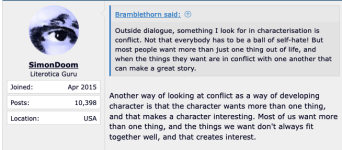Bramblethorn
Sleep-deprived
- Joined
- Feb 16, 2012
- Posts
- 18,183
Interesting case here: Netflix's "The Queen's Gambit" is a fictional series about a fictional female chess player, Beth Harmon, playing against a male opponent. Along the way, a commentator contrasts Harmon to a real female player, Nona Gaprindashvili, implying that Harmon's achievements are greater because Gaprindashvili "never played against men". The real Gaprindashvili, who did play against men on many occasions, took exception and sued.
Netflix tried to argue that it was a work of fiction and therefore couldn't be defamatory, but a judge rejected that argument, holding that readers could reasonably have taken those remarks to be historical truth incorporated into fiction. After that, Netflix settled for an undisclosed amount.
I guess the message here is that if you incorporate real live people into a story, you need to be careful what you say about them; an "everything is fictional" disclaimer might not be a get-out-of-jail-free card if the story suggests otherwise.
Netflix tried to argue that it was a work of fiction and therefore couldn't be defamatory, but a judge rejected that argument, holding that readers could reasonably have taken those remarks to be historical truth incorporated into fiction. After that, Netflix settled for an undisclosed amount.
I guess the message here is that if you incorporate real live people into a story, you need to be careful what you say about them; an "everything is fictional" disclaimer might not be a get-out-of-jail-free card if the story suggests otherwise.
